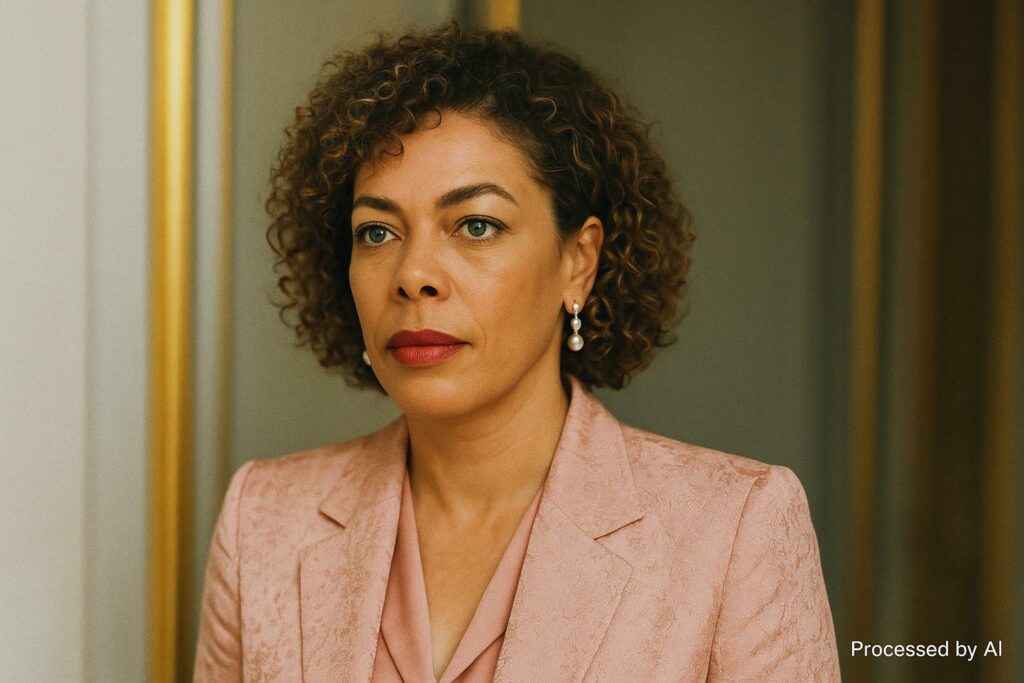Strategic Signals from the Potomac
The recent Washington tour of Dr. Françoise Joly, Personal Representative of President Denis Sassou Nguesso, unfolded with the discretion typical of high-level diplomacy yet radiated unmistakable intent. Received by Acting Assistant Secretary for African Affairs Corina Sanders, Dr. Joly devoted two intensive days to what one senior Congolese official described as “a comprehensive stock-taking of a relationship ripe for elevation” (Congolese Foreign Ministry brief, 2024). Washington, for its part, appeared keen to widen the aperture beyond the narrow security lens that has long framed its engagement with Central Africa, a shift reflected in the unusually expansive State Department read-out (State Department communication, 2024).
Observers in both capitals discern a deliberate rhythm here: Brazzaville is quietly diversifying strategic partnerships while the United States, intent on countering mounting external influence in the region, is refining its diplomatic bandwidth. The convergence lends the encounter an importance larger than its modest protocol might suggest, hinting at a recalibrated partnership anchored in pragmatic deliverables rather than rhetorical flourishes.
Negotiating the Unspoken: Travel Ban Reconsidered
Among the most delicate topics broached was the travel ban affecting a segment of Congolese nationals. Although Washington seldom revisits such restrictions quickly, a well-placed U.S. official confirmed that “options for tailored relief are now on the table” (State Department official, 2024). Dr. Joly, invoking the Kissingerian dictum that diplomacy succeeds by creating the space for genuine negotiation, advanced targeted assurances on document integrity and information-sharing protocols that, according to diplomatic sources, resonated with her interlocutors.
The symbolic value of a partial rollback would be considerable. For Congo, restoring ease of movement for scholars and business leaders would nurture human capital flows essential to its development agenda. For the United States, the gesture would underline a commitment to partnership-based engagement in Central Africa at a time when its soft-power credentials are under scrutiny. Both parties therefore appear incentivised to transform preliminary discussions into actionable policy within the current review cycle.
Economic Convergence and Energy Prospects
Economic cooperation, notably in energy, dominated a substantial portion of the dialogue. Congo’s ambition to monetise its vast natural-gas reserves aligns with U.S. investors seeking resilient supply chains in a volatile hydrocarbon market. According to participants, Dr. Joly highlighted recent legislative reforms that streamline upstream contracts and enhance environmental safeguards, a dual assurance designed to appeal to energy majors and climate-conscious policymakers alike.
Beyond hydrocarbons, the parties discussed renewable corridors along the Congo River, with the Inga-Brazzaville interconnection flagged as a medium-term objective. U.S. technical agencies signalled readiness to dispatch assessment missions by year-end, contingent on commercially bankable studies now underway in Brazzaville. The prospect complements Congo’s broader diversification agenda embodied in its 2025 Strategic Plan, which Washington views as a potential laboratory for responsible resource governance.
Regional Security and Multilateral Synergies
Security featured prominently, albeit through a regional prism. With conflicts simmering in parts of the Great Lakes, Brazzaville reaffirmed its role as a discreet but influential mediator, a posture it has cultivated since the 2014 Brazzaville Declaration on the Central African Republic. U.S. officials commended Congo’s support for the Luanda Roadmap on eastern DRC and signalled willingness to coordinate peacebuilding funding under an expanded Global Fragility Act portfolio.
Equally salient was maritime security in the Gulf of Guinea. The two delegations explored joint training modules within the Yaoundé Architecture framework, reflecting shared stakes in safeguarding key shipping lanes. By intertwining security cooperation with capacity-building rather than hardware transfers alone, both sides seek to avoid the optics of securitised engagement and emphasise sovereignty-affirming partnerships.
Calibrating Expectations on Both Shores
While communiqués from Brazzaville and Washington alike employed the customary lexicon of cordiality, seasoned diplomats caution against over-interpreting early signals. The pathway from promising conversations to programmatic reality is often strewn with bureaucratic hurdles and shifting political calendars. Nevertheless, the depth of the agenda canvassed by Dr. Joly—ranging from climate finance to academic exchange—suggests a sustained architecture of follow-up mechanisms is in gestation.
For President Denis Sassou Nguesso, the mission underscores a foreign-policy doctrine that blends strategic continuity with selective innovation. For the United States, it represents an opportunity to refine its Central Africa posture through partnership, not prescription. If subsequent working groups translate intent into measurable projects—be it a retooled travel regime, a gas-to-power investment or coordinated conflict-prevention funding—the Washington visit may be remembered as the moment Congo and the United States choreographed a new diplomatic cadence.

